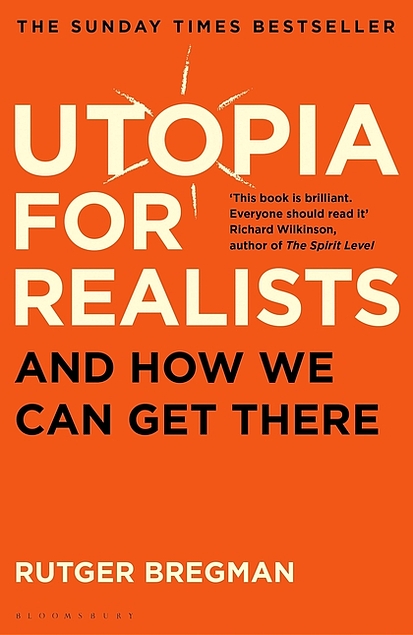Brian Catling
Nov. 28th, 2021 02:21 amI watched another fascinating Arena arts program on BBC iPlayer. It was called
B. Catling: Where Does It All Come From?
https://www.bbc.co.uk/iplayer/episode/m0011v76/arena-b-catling-where-does-it-all-come-from?xtor=ES-211-[48792_PANUK_DIV_47_IPL_Editorial2021_RET_ABC]-20211127-[bbcfour_arenabcatlingwheredoesitallcomefrom_factualarts]
An eye-popping insight into the extraordinary, late-flourishing career of the maverick artist, teacher, and performer Brian Catling RA, whose unique vision and imagination are celebrated through a shifting narrative of newly restored archive material, exclusive interviews, and specially shot footage.
Brian Catling was born in 1948, a foundling adopted and raised in tenements on the Old Kent Road in postwar south London. He is an internationally exhibited and lauded sculptor and, as B. Catling, the author of The Vorrh Trilogy, a vast work of untrammelled imagination, and the novel Earwig, which provided the inspiration for Lucile Hadzihalilovic’s 2021 film of the same name. Catling is also a professor at the Ruskin School of Drawing and Fine Art at the University of Oxford, a royal academician and a Cholmondeley Award-winning poet. He is also the erstwhile impresario of the legendarily disreputable Cabaret Melancholique and an occasional sinister cinematic presence, both in front of and behind the camera.
Where Does It All Come From is a window into Catling’s world that, like Catling himself, defies categorization. It is shaped through a stitching-together of rediscovered archive material with newly shot interviews, fragments of previously unseen filmworks, interjections and interactions, ghosts and revenants. Important locations in Catling’s life and work – south London and Whitechapel, museums, churches, dives, Gozo, Leipzig, Copenhagen – are interwoven with imaginary landscapes and revisited, explored or recreated. Interviews and long-lost performances are remade and repurposed, seances held, dead or vagrant voices resuscitated. Characters, symbols and strange beings – some of whom then reveal their role and purpose – are glimpsed or merely spoken of, sometimes without explanation. At times, fiction hijacks fact to reveal other, deeper truths.
We see Catling at work, in the past and the present, in public performance, on stage, conjuring uncanny presences in galleries, abandoned rooms and in his studio. His histories are told, including childhood obsessions with outsiders and monsters, the early days of art school and labouring jobs at Truman’s Brewery, becoming an artist, a sculptor and maker of installations, and his decision to retreat from the London art world.
A host of writers, artists, musicians, curators and former students, including actor Ray Winstone recollecting a terrifying encounter in London’s Whitechapel, are also called upon to bear witness to a creative spirit who defies definition and is capable of endless self-reinvention.
Fascinating program.
Also, check out the Delia Derbyshire one -
https://www.bbc.co.uk/iplayer/episode/m000w6tr/arena-delia-derbyshire-the-myths-and-the-legendary-tapes
B. Catling: Where Does It All Come From?
https://www.bbc.co.uk/iplayer/episode/m0011v76/arena-b-catling-where-does-it-all-come-from?xtor=ES-211-[48792_PANUK_DIV_47_IPL_Editorial2021_RET_ABC]-20211127-[bbcfour_arenabcatlingwheredoesitallcomefrom_factualarts]
An eye-popping insight into the extraordinary, late-flourishing career of the maverick artist, teacher, and performer Brian Catling RA, whose unique vision and imagination are celebrated through a shifting narrative of newly restored archive material, exclusive interviews, and specially shot footage.
Brian Catling was born in 1948, a foundling adopted and raised in tenements on the Old Kent Road in postwar south London. He is an internationally exhibited and lauded sculptor and, as B. Catling, the author of The Vorrh Trilogy, a vast work of untrammelled imagination, and the novel Earwig, which provided the inspiration for Lucile Hadzihalilovic’s 2021 film of the same name. Catling is also a professor at the Ruskin School of Drawing and Fine Art at the University of Oxford, a royal academician and a Cholmondeley Award-winning poet. He is also the erstwhile impresario of the legendarily disreputable Cabaret Melancholique and an occasional sinister cinematic presence, both in front of and behind the camera.
Where Does It All Come From is a window into Catling’s world that, like Catling himself, defies categorization. It is shaped through a stitching-together of rediscovered archive material with newly shot interviews, fragments of previously unseen filmworks, interjections and interactions, ghosts and revenants. Important locations in Catling’s life and work – south London and Whitechapel, museums, churches, dives, Gozo, Leipzig, Copenhagen – are interwoven with imaginary landscapes and revisited, explored or recreated. Interviews and long-lost performances are remade and repurposed, seances held, dead or vagrant voices resuscitated. Characters, symbols and strange beings – some of whom then reveal their role and purpose – are glimpsed or merely spoken of, sometimes without explanation. At times, fiction hijacks fact to reveal other, deeper truths.
We see Catling at work, in the past and the present, in public performance, on stage, conjuring uncanny presences in galleries, abandoned rooms and in his studio. His histories are told, including childhood obsessions with outsiders and monsters, the early days of art school and labouring jobs at Truman’s Brewery, becoming an artist, a sculptor and maker of installations, and his decision to retreat from the London art world.
A host of writers, artists, musicians, curators and former students, including actor Ray Winstone recollecting a terrifying encounter in London’s Whitechapel, are also called upon to bear witness to a creative spirit who defies definition and is capable of endless self-reinvention.
Fascinating program.
Also, check out the Delia Derbyshire one -
https://www.bbc.co.uk/iplayer/episode/m000w6tr/arena-delia-derbyshire-the-myths-and-the-legendary-tapes








